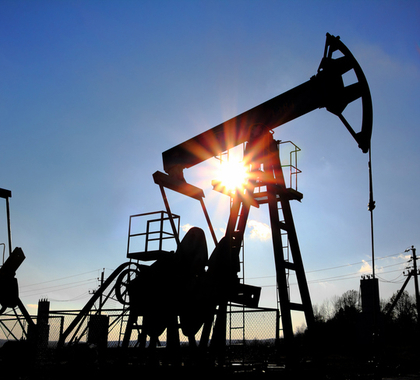A new poll from the American Petroleum Institute (API) shows voters in energy-producing swing states support increasing access to oil and natural gas and the candidates who support those industries.
The poll of more than 8,600 registered voters in 12 states—Arizona, Colorado, Florida, Georgia, Iowa, Michigan, Minnesota, Nevada, New Mexico, Ohio, Pennsylvania, and Texas—was conducted by Morning Consult and found 64 percent of voters would “be more likely to vote for a candidate who supports policies that ensure consumers have access to natural gas and oil produced in the U.S.”
Further, 82 percent of voters in these states say “natural gas and oil provide value to their lives,” while 73 percent believe oil and natural gas will be “a significant part of America’s energy needs” in 2040. And while 76 percent of respondents admit that the COVID-19 pandemic has significantly hurt their state’s economy, 63 percent said they expect the oil and natural gas industries to play an “important role” in any economic recovery.
What’s more, 93 percent responded that it was important for the United States to not be reliant on other countries for oil, while 92 percent believe it is important to keep energy and gasoline prices affordable.
“As we approach the election, it is clear a majority of voters know and support the critical role the natural gas and oil industry plays in driving the economic recovery, keeping energy costs low and protecting national security,” API President and CEO Mike Sommers said in a press release accompanying the poll results. “U.S. energy leadership has been a priority of every one of our last seven presidents, Democrat and Republican – a trend this polling shows American voters want to see continue. Proposals to ban U.S. energy production are out of step with bipartisan support for an all-of-the-above energy approach and would set America back by returning us to the days of relying on foreign energy.”
Survey respondents were nearly unanimous—93 percent—in their belief in the importance of “creating more high paying jobs in the U.S.,” and this is what the fossil fuel industries produce. The oil and natural gas industries directly supported more than 2.79 million jobs across the United States in 2015, according to a 2017 API study prepared by PricewaterhouseCoopers. These vital industries produced more than $289 billion in labor income and accounted for $602 billion in economic impact. If you add indirect and induced impacts, this rises to 10.3 million jobs, $714 billion in labor income, and $1.3 trillion in economic impact.
Two surveys commissioned and released by North America’s Building Trades Union (NABTU) earlier this year supports the API data and demonstrate how the oil and natural gas industries provide better pay, benefits, and career opportunities than those in other sectors and are providing “a vital pathway to middle class careers and living standards” for those without a college education.
“Tradespeople report noteworthy differences between projects in renewable energy and oil and natural gas projects,” one of the study states. “They report better project variety, trades opportunities, skill development, and project consistency in oil and natural gas construction. Many of the trades that work on oil and natural gas projects are not as prevalent on renewables projects, indicating that skilled trade jobs are not highly interchangeable between industries.”
Further, the other NABTU study notes, the “construction and oil & natural gas industries rely heavily on high school graduates to staff about 45 percent of all the jobs in these two industries. Relative to many other high school graduates with no college education, high school graduates in construction, oil & natural gas are paid better while receiving more health insurance and pension coverage. This is both true for blue-collar and white-collar high school graduates in these two industries.”
Oil and natural gas sources are abundant, inexpensive, environmentally safe, and can ensure the United States remains a leading energy producer well beyond the 21st century. This survey shows Americans, regardless of political affiliation, education level, or area of residence, acknowledge how important these industries are for them personally, and for the country as a whole. Therefore, policymakers and those aspiring for office should heed the advice of their constituents and neighbors and refrain from placing unnecessary burdens on the natural gas and oil industries, which are safe, positively impact the country’s economy, and provide solid employment for millions of workers.
The following documents provide more information about the oil and natural gas industries.
What If…Hydraulic Fracturing Were Banned? (2020 Edition)
https://www.globalenergyinstitute.org/sites/default/files/2019-12/hf_ban_report_final.pdf
This study from the Global Energy Institute at the U.S. Chamber of Commerce says a ban on fracking in the United States would be catastrophic for our economy. Their analysis shows that if such a ban were imposed in 2021, by 2025 it would eliminate 19 million jobs and reduce U.S. Gross Domestic Product by $7.1 trillion. Tax revenue at the local, state, and federal levels would decline by nearly a combined $1.9 trillion. Natural gas prices would leap by 324 percent, causing household energy bills to more than quadruple. By 2025, motorists would pay twice as much at the pump for gasoline as oil prices spike to $130 per barrel, while less domestic energy production would also mean less energy security.
America’s Progress at Risk: An Economic Analysis of a Ban on Fracking and Federal Leasing for Natural Gas and Oil Development
https://www.api.org/~/media/Files/Oil-and-Natural-Gas/Hydraulic-Fracturing/2020/fracking-ban-study-americas-progress-at-risk.pdf
The study from the American Petroleum Institute (conducted by economic modeling firm OnLocation) warns that banning federal leasing and fracking on public and private lands, which some presidential candidates have proposed, would cost up to 7.5 million American jobs in 2022 alone, lead to a cumulative GDP loss of $7.1 trillion by 2030, slash household incomes by $5,400 annually, increase household energy costs by more than $600 per year and reduce farm incomes by 43 percent due to higher energy costs. If a ban is enacted, the U.S. would flip from being a net exporter of oil and petroleum products to importing more than 40 percent of supplies by 2030.
The Local Economic and Welfare Consequences of Hydraulic Fracturing
https://heartland.org/publications-resources/publications/the-local-economic-and-welfare-consequences-of-hydraulic-fracturing
This comprehensive study published by the National Bureau of Economic Research says fracking brings, on average, $1,300 to $1,900 in annual benefits to local households, including a 7 percent increase in average income, a 10 percent increase in employment, and a 6 percent increase in housing prices.
Impacts of the Natural Gas and Oil Industry on the U.S. Economy in 2015
https://heartland.org/publications-resources/publications/impacts-of-the-natural-gas-and-oil-industry-on-the-us-economy-in-2015
This study, conducted by PricewaterhouseCoopers and commissioned by the American Petroleum Institute, shows that the natural gas and oil industry supported 10.3 million U.S. jobs in 2015. According to the Bureau of Labor Statistics, the average wage paid by the natural gas and oil industry, excluding retail station jobs, was $101,181 in 2016, which is nearly 90 percent more than the national average. The study also shows the natural gas and oil industry has had widespread impacts in each of the 50 states.
The U.S. Leads the World in Clean Air: The Case for Environmental Optimism
https://files.texaspolicy.com/uploads/2018/11/27165514/2018-11-RR-US-Leads-the-World-in-Clean-Air-ACEE-White.pdf
This paper from the Texas Public Policy Foundation examines how the United States achieved robust economic growth while dramatically reducing emissions of air pollutants. The paper states that these achievements should be celebrated as a public policy success story, but instead the prevailing narrative among political and environmental leaders is one of environmental decline that can only be reversed with a more stringent regulatory approach. Instead, the paper urges for the data to be considered and applied to the narrative.
Climate Change Reconsidered II: Fossil Fuels – Summary for Policymakers
https://heartland.org/publications-resources/publications/climate-change-reconsidered-ii-fossil-fuels—summary-for-policymakers
In this fifth volume of the Climate Change Reconsidered series, 117 scientists, economists, and other experts assess the costs and benefits of the use of fossil fuels by reviewing scientific and economic literature on organic chemistry, climate science, public health, economic history, human security, and theoretical studies based on integrated assessment models (IAMs) and cost-benefit analysis (CBA).
The Social Benefits of Fossil Fuels
https://heartland.org/publications-resources/publications/the-social-benefits-of-fossil-fuels
This Heartland Policy Brief by Joseph Bast and Peter Ferrara documents the many benefits from the historic and still ongoing use of fossil fuels. Fossil fuels are lifting billions of people out of poverty, reducing all the negative effects of poverty on human health, and vastly improving human well-being and safety by powering labor-saving and life-protecting technologies, such as air conditioning, modern medicine, and cars and trucks. They are dramatically increasing the quantity of food humans produce and improving the reliability of the food supply, directly benefiting human health. Further, fossil fuel emissions are possibly contributing to a “Greening of the Earth,” benefiting all the plants and wildlife on the planet.
Nothing in this Research & Commentary is intended to influence the passage of legislation, and it does not necessarily represent the views of The Heartland Institute. For further information on this subject, visit Environment & Climate News, The Heartland Institute’s website, and PolicyBot, Heartland’s free online research database.
The Heartland Institute can send an expert to your state to testify or brief your caucus; host an event in your state; or send you further information on a topic. Please don’t hesitate to contact us if we can be of assistance! If you have any questions or comments, contact Heartland’s Government Relations department, at [email protected] or 312/377-4000.




